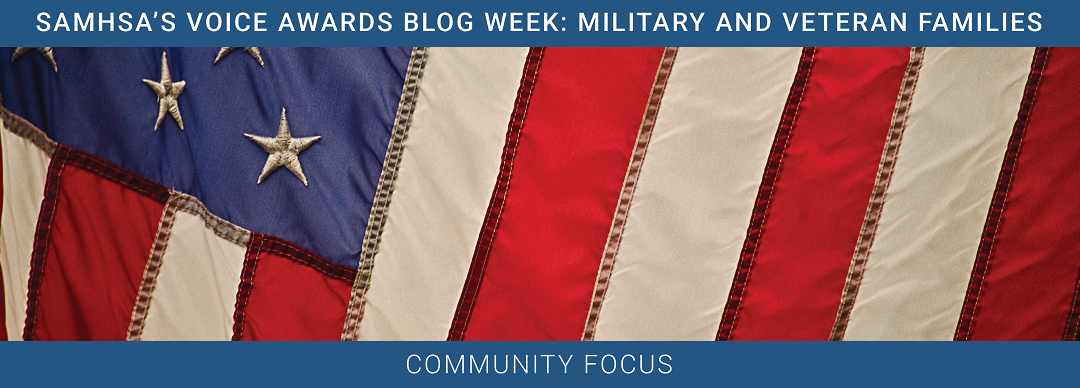Having the good fortune to travel throughout the country working with states, territories, and the District of Columbia to support the enhancement of the systems that support service members, veterans, and their families (SMVF), I have seen many innovative initiatives in communities. All of these initiatives are being led by dedicated people who are committed to supporting our returning SMVF. One resource that I have found very helpful as a civilian straddling the military/Veteran world is the Post-Combat Normal (PCN) podcast hosted by retired U.S. Marine, Joe Morgan. In my opinion, Joe’s podcast is one of the most impactful mechanisms that I have found in my 11 years working to support SMVF.
Joe launched his podcast to try to connect to Veterans who are struggling with post-traumatic stress disorder (PTSD). Joe himself is living with PTSD, which he calls post-combat normal because, based on what he went through in combat, what he is now experiencing is normal. He believes that Veterans and their families can adjust to their new normal with the right supports. While Joe’s main purpose is to reach the hard to reach Veterans who are struggling, his personal experiences and the experiences of his Veteran guests offer important and rare insights into military culture. Joe has also featured doctors and providers who provide helpful information and resources, and do so in ways that are digestible and relatable. I find the podcast to be very helpful for those of us who have a civilian perspective.
PCN allows those of us who work on behalf of Veterans a glimpse into intensely private realities that most veterans will never share with civilians. Few PCN episodes go by without Joe stressing that despite all of the challenges he has faced, he would go back into service in a heartbeat. This is a sentiment many Veterans share, and it’s a sentiment that anyone who works with Veterans need to be aware of and respect. For those of us who have never served, we need to understand that the sense of purpose, structure, and camaraderie found in the military is often hard to replicate when a service member transitions to civilian life. When Joe shares what he’s thinking as a husband and father and why he’s reacting the way that he is, his stories help other spouses and children to better understand why some Veterans respond so strongly when they are worried about those they love. In episode four, Joe’s guest discusses what his gun means to him. Every opportunity that Joe provides for the audience to hear such frank insight into the Veteran experience, he is helping us be better at the work we are trying to do.
The PCN podcast is increasing awareness of the mental health of our Veterans who are living with PTSD. While the Veterans who are isolated may not themselves tune in to the podcast, Joe hopes that they will still benefit from his work. Certainly, as the listenership of the podcast grows, SMVF and the civilian community overall will be prompted to reach out to the battle buddy they haven’t heard from in a while or the Veteran who has been struggling. This outreach could very well be the critical difference in a Veteran and their family’s successful transition.
—
 In honor of National Military Appreciation Month and the Month of the Military Caregiver, the Substance Abuse and Mental Health Administration’s (SAMHSA’s) Voice Awards and the Elizabeth Dole Foundation’s Hidden Heroes are co-hosting a Blog Week to support America’s service members, veterans, and their families (SMVF). Each day from May 22 to May 27, members of SAMHSA’s SMVF Technical Assistance Center, operated by Policy Research Associates, Inc., will post a blog responding to the Blog Week’s prompts. Monday will focus on Families and Caregivers, Tuesday will focus on Individuals and Families, Wednesday will focus on Entertainment, Thursday will focus on Communities, Friday will focus on Organizations, and Saturday will focus on Memorial Day. Check the PRA blog daily for new posts and follow the conversation on Twitter using the hashtag #VoiceAwards.
In honor of National Military Appreciation Month and the Month of the Military Caregiver, the Substance Abuse and Mental Health Administration’s (SAMHSA’s) Voice Awards and the Elizabeth Dole Foundation’s Hidden Heroes are co-hosting a Blog Week to support America’s service members, veterans, and their families (SMVF). Each day from May 22 to May 27, members of SAMHSA’s SMVF Technical Assistance Center, operated by Policy Research Associates, Inc., will post a blog responding to the Blog Week’s prompts. Monday will focus on Families and Caregivers, Tuesday will focus on Individuals and Families, Wednesday will focus on Entertainment, Thursday will focus on Communities, Friday will focus on Organizations, and Saturday will focus on Memorial Day. Check the PRA blog daily for new posts and follow the conversation on Twitter using the hashtag #VoiceAwards.


